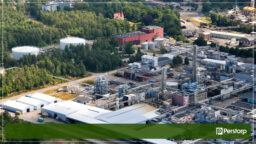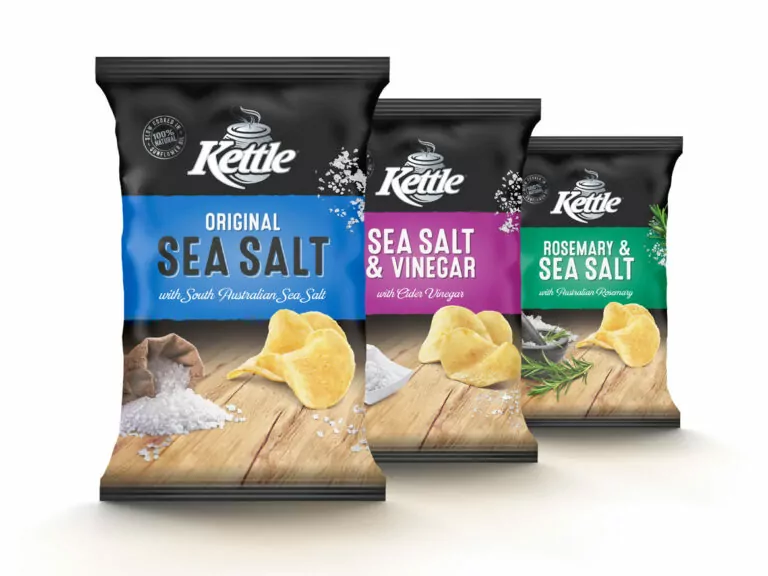Finsbury Food Group is one of the UK’s leading specialty bakery manufacturers. The group produces a wide range of cakes, bread and snack products as well as making baked goods under license for well-known brands such as Thornton’s, Disney and Vogel’s.
To support its acquisition strategy, the £356m Cardiff-based company needed to strengthen its supply chain planning capabilities. In search of an integrated and scalable planning solution, Finsbury turned to Optimity.
The challenge – consolidating supply chain planning
Liam McVey, Group Demand Planning Manager at Finsbury, explains how the numerous acquisitions impact the group’s supply chain planning situation and the decision to partner with Optimity.
“Each acquisition comes with a new set of systems and processes. We rolled out a common ERP platform in 2018, but we were still dependent on legacy planning tools and spreadsheets. To leverage our size and support our continued growth, we needed better supply chain visibility and an easier way to integrate future acquisitions. In short, we needed an agile, integrated planning platform, and that’s exactly what Optimity gives us.”
Automated forecasting empowers demand planners
Finsbury is split into a cake and a bread division, each with four factories. The project team decided to start the implementation with the Demand Forecaster in the more mature cake division.
Liam says, “The demand forecast feeds everything else, so it was the obvious place to start. Also, we already had a standalone forecasting system in place. Albeit very basic, it worked, and it allowed us to run the two systems in parallel while we were getting everyone up to speed. It also gave us time to address our data quality. Indeed, anyone considering a supply chain planning solution shouldn’t underestimate this work.”
“Optimity takes care of all the heavy lifting. Instead of preparing data, our demand planners can now go straight to the dashboards and analyze the data. This is where they create value.”
Liam McVey
Group Demand Planning Manager
Liam explains that the added functionality in Optimity has made a big difference and allows the planners to work smarter and be more proactive. “Optimity takes care of all the heavy lifting. Instead of preparing data, our demand planners can now go straight to the dashboards and analyze the data. This is where they create value. Following the implementation, we’ve doubled their area of responsibility. In doing so, we’ve only had to increase the headcount by one – from six to seven. That shows how Optimity empowers the planners.”
A synchronized supply chain
Finsbury operates a mix of highly automated and labor-intensive factories. Some sites have time-sensitive processes like fermentation and proving, while others run in-line processes, from raw material to finished product. Optimizing such diverse operations without adequate system support is nearly impossible.
Today, Finsbury uses the Supply Chain Optimizer to generate an integrated production, materials, and inventory plan. Oliver Widdowson, Head of Supply Planning at Finsbury, oversaw the supply side implementation. “For the first time, we can synchronize our supply chain properly. For example, we can plan our materials based on an optimized supply plan rather than a sales forecast, as with MRP.“
“For the first time, we can synchronize our supply chain properly. For example, we can plan our materials based on an optimized supply plan rather than a sales forecast, as with MRP.”
Oliver Widdowson
Head of Supply Planning
Finsbury also uses Optimity’s Production Scheduler at each of its production sites. Taking the first weeks of the optimized production plan from the Supply Chain Optimizer as input, the tool helps the schedulers determine optimal production sequences, factoring in capacity and labor constraints, sequencing rules, and material availability. Oliver says, “Although each site faces unique operational challenges, we can model and optimize them all in Optimity.”
Gartner gives the new S&OP process its seal of approval
One of Finsbury’s main project objectives was to enable effective S&OP and provide a platform for the company’s future Integrated Business Planning (IBP) initiative.
Liam, whose formal title will soon change to IBP Manager, says, “Our existing S&OP process wasn’t up to the task. We now have a robust S&OP process, and Optimity has played a big part in that success. We’ve recently had our process independently assessed by Gartner, and we’ve now reached a level of maturity where we’re ready for full-scale IBP.”
The ability to plan holistically and evaluate multiple scenarios was central to achieving this milestone.
“We now have a robust S&OP process, and Optimity has played a big part in that success. We’ve recently had our process independently assessed by Gartner, and we’ve now reached a level of maturity where we’re ready for full-scale IBP.”
Liam McVey
Group Demand Planning Manager
“The functional disconnects are gone, and we can make planning decisions on the front foot. The Supply Chain Optimizer shows where we need to adjust labor and resource capacity or make alternative material arrangements. For example, we can evaluate freezing options to take advantage of available capacity that we’d ordinarily lose. By applying costs and working capital requirements to the scenarios, we can plan and budget our business properly and influence the future.”
Rising to the challenge
The project was delivered during a global pandemic amid economic and supply chain turmoil. “We were caught in the middle of a storm. There was a massive shift in consumer behavior, and we were dealing with major staff and material shortages. We could have used this as an excuse to put the project on hold, but we decided to push ahead. We’re happy that we did. Thanks to Optimity, we were able to react quicker and create alternative scenarios that helped us circumvent many of the issues,” says Liam.
Results
The overall planning performance at Finsbury has improved significantly, and Liam and Oliver agree that the recent integration between the demand and supply planning drives a lot of value.
Liam says, “The system has brought the teams closer. When a change is made to the demand forecast, the supply planners can immediately see the impact on inventory levels and our ability to meet demand. In the past, they would wait a week for this information. This has a positive knock-on effect on customer service. For example, our Johnstone’s Food Services business has seen a significant 5% year-on-year service level improvement.”
“Since introducing Optimity, we’ve reduced our net working capital by £1.6 million. Much of this comes from smarter procurement and dynamically optimized safety stocks.”
Mathew Baxter
Supply Chain Director
Mathew Baxter, Supply Chain Director at Finsbury, is pleased to see how the new solution is already paying dividends. “Since introducing Optimity, we’ve reduced our net working capital by £1.6 million. Much of this comes from smarter procurement and dynamically optimized safety stocks.”
Crucially, planning spreadsheets are now a thing of the past at Finsbury, and the company is less dependent on key individuals. Liam explains that this was one of the initial goals of the project. “Operational knowledge that previously resided in the heads of a few select individuals now sits in Optimity. When a business rule or constraint changes, we just update the planning model,” says Oliver.
Next steps – Integrated Business Planning
Supply Chain planning at Finsbury has become more strategic since the introduction of Optimity. With profit optimization, scenario planning capabilities, and intuitive analytics at their fingertips, supply and demand planners can add significantly more value. At the same time, the business has become more agile, both operationally and from a customer service perspective.
Liam says, “The teams have done a fantastic job. The Optimity consultants worked closely with our experts and took the time to understand our business. This meant they could design a solution that was right for Finsbury. It was never a case of just pushing textbook best practices. We also conducted a proof of concept and post-implementation assessment at each site. This way, we could gradually establish a scalable implementation process.”
“Finsbury is on a journey, and we are happy to have Optimity onboard. We now have the people, system infrastructure, and process maturity to take on IBP.”
Liam McVey
Group Demand Planning Manager
With a much-improved S&OP process, the Finsbury team is now targeting Integrated Business Planning (IBP). Liam can’t wait to get started, “Finsbury is on a journey, and we are happy to have Optimity onboard. We now have the people, system infrastructure, and process maturity to take on IBP.”
About Finsbury Food Group
Finsbury Food Group is a leading specialty bakery manufacturer, producing a diverse range of cakes, bread, and snack products for the UK’s major multiple retailers and foodservice channel. Headquartered in Cardiff, the group has an annual revenue of £356.8m (2022).
To find out more about the Finsbury project, contact Erik Sandberg.
Get all the latest industry trends, updates & news from Optimity















